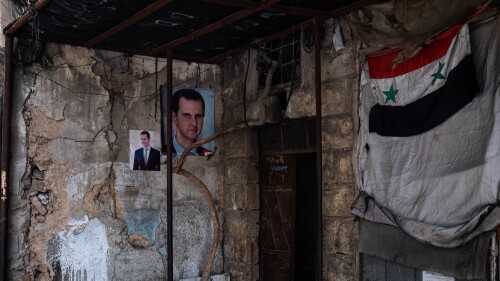The prospect of war between India and Pakistan shows how profoundly things have changed since Sept. 11. “From this day forward,” President Bush announced just days after the attack, “any nation that continues to harbor or support terrorism will be regarded by the United States as a hostile regime.” Washington, he signaled, would henceforth see international politics through the prism of its war on terrorism.
Many observers, including this one, doubted his us-and-them approach. This unrealistic bifurcation, I wrote in the Oct. 15 Post, “will not work in the real world of messy and competing interests.”
Well, I was wrong - the president meant what he said. Since Sept. 11, the war on terror has overhauled U.S. foreign policy. Nearly all American relations with the outside world are developed with this issue in mind. This seriousness of purpose - so unlike the Clinton years - has vast implications. Here are two.
First, many states have adopted the war on terror to their own circumstances. Some of them (Zimbabwe, Syria, Nepal) do so opportunistically, with no al Qaeda problem in sight. Others that really do have a problem with militant Islam - Russia, Uzbekistan, Tajikistan, Israel, India, China, the Philippines - restated their case in anti-terrorism terms to win American approval. We are witnessing a fledgling but unprecedented alliance of the world’s great powers against the forces of militant Islam.
The cases of Israel and India stand out. After Sept. 11, suicide terrorism by militant Islam temporarily stopped, resuming only in December with parallel assaults on these two countries.
Israel. Hamas and Islamic Jihad launched four terrorist attacks on Dec. 1-2, killing 26 Israelis and wounding many more. Prime Minister Ariel Sharon responded by announcing, “We will treat Palestinian terrorism exactly as you [Americans] treat bin Laden terrorism.” Emulating Bush’s policy toward the Taliban, Sharon held the Palestinian Authority “directly responsible” for the violence and sent Israeli troops into its areas to extirpate terrorism.
India. If not for a mishap by the terrorists, the Dec. 13 assault by Jaish-e-Muhammad on India’s Parliament building would have assassinated much of the country’s political leadership and probably caused a national crisis. Also emulating U.S. policy, New Delhi held Pakistan responsible and demanded a crackdown on Jaish-e-Muhammad and Lashkar-e-Tayyaba, militant Islamic groups supported by Pakistan’s intelligence service, threatening dire consequences if its wishes were disregarded. The two sides spoke of war, recalled diplomats, cut transportation links, put troops on “very high alert,” evacuated villages, laid mines, deployed missiles, and exchanged artillery fire.
The Bush administration correctly accepted these as legitimate variants of its war against terrorism. It newly sympathized with the Russian and Chinese efforts. It sent military advisors and nearly $100 million in aid to the Philippines. It abandoned the earlier calls for mutual restraint and instead shifted in favor of Israel and India, noting how these governments have “a legitimate right to self-defense.”
Second, the Bush policy has governments around the world paying much more attention to U.S. wishes. The petty criticisms of last August about U.S. “unilateralism” is history; foreign states now jump when Washington speaks.
In mid December, for example, Defense Department sources noted the al Qaeda infrastructures in Yemen and Somalia and fingered them as potential targets. Those states immediately stood up and saluted. On Dec. 18, the Yemeni authorities launched a military campaign in the east against al Qaeda and days later arrested foreign adventurers. On Dec. 24, long-feuding Somali factions hastily put together a transitional government and vowed to eradicate al Qaeda in their country.
Stepping back from the details, we see here something very major indeed, perhaps even (to use the term made notorious by the first President Bush) a new world order. It is characterized by an assertive United States using its power to protect itself, stand by its friends, and intimidate its enemies.
Yes, this involves dangers, as shown by the growing worry of a nuclear exchange between India and Pakistan. But the only way to defeat militant Islam is through a willingness to fight it; and the sooner it is confronted, the less bloody the fight will be.
That the tragedy of Sept. 11 really has turned into an international wake up call is primarily a testimony to the leadership of George W. Bush. We are only beginning to see how focused, consistent, and determined he is.







